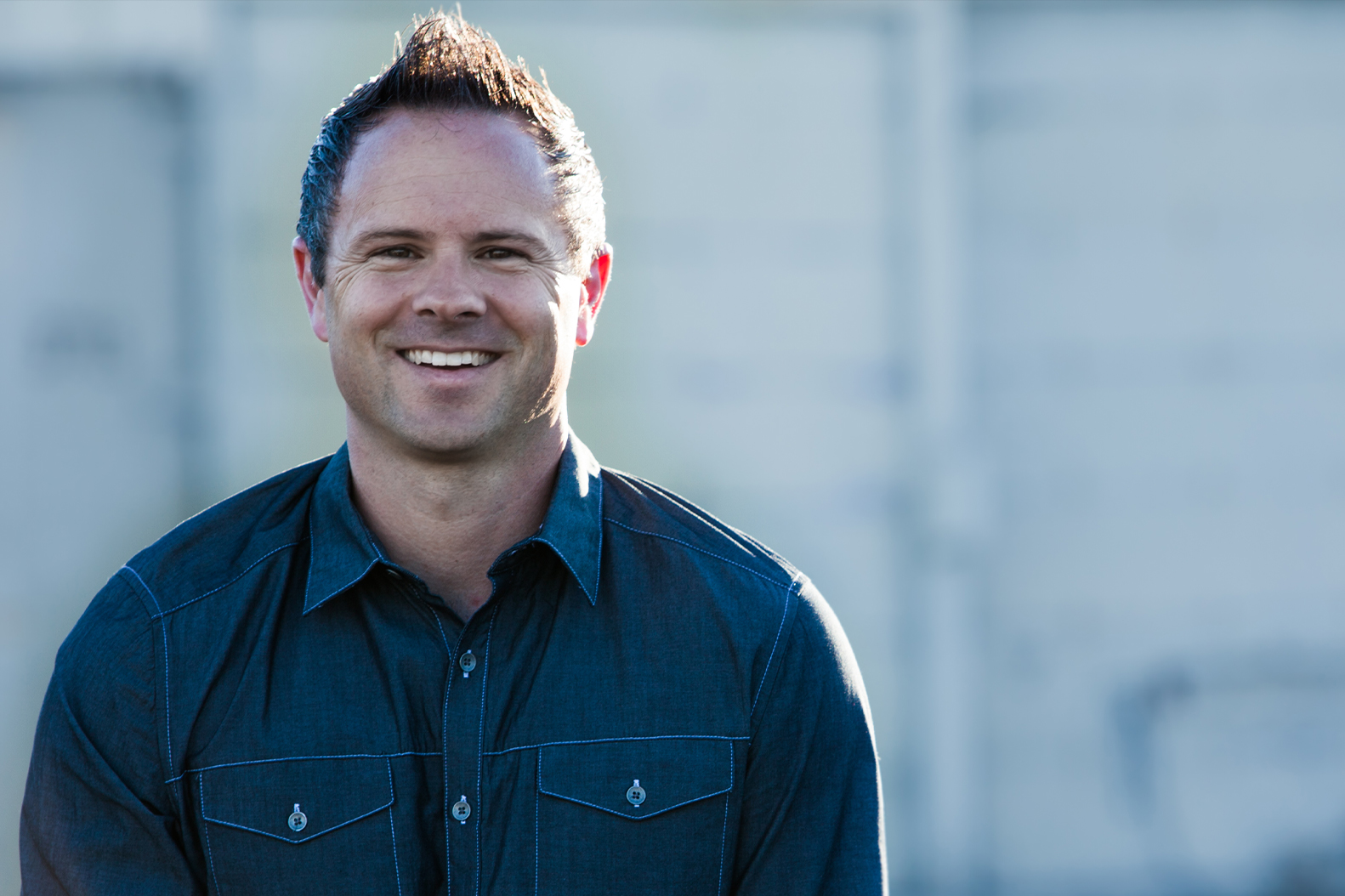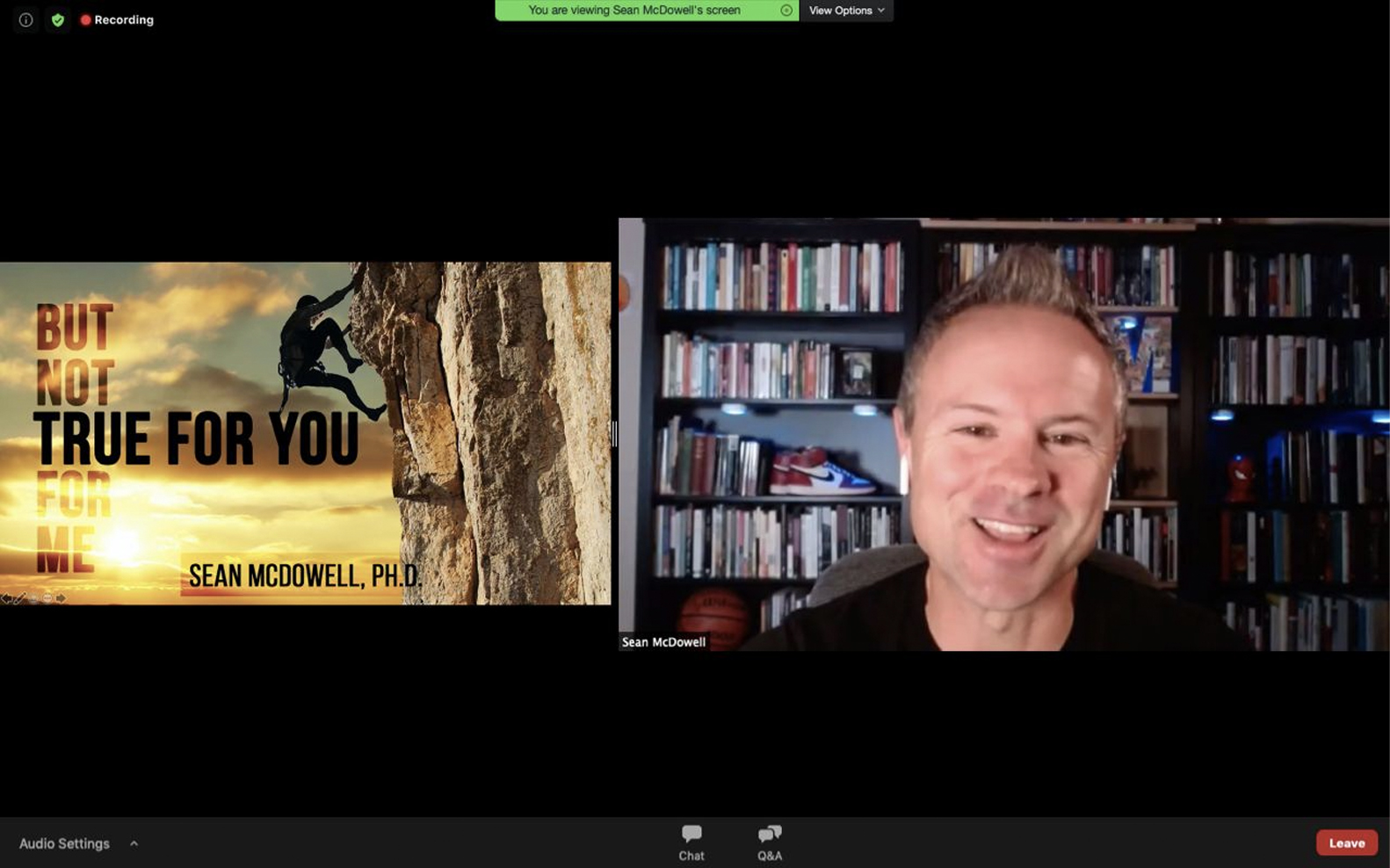I remember hearing about “post-truth” for the first time at my church’s conference two years ago. The speaker described our society as a “post-truth” society, where truth is based more on how we feel than on facts.
This resonated with what I’ve been seeing and experiencing on social media and other communities, where it’s common to hear someone say: “That may be your truth, but it’s not mine.”
Admittedly, I sometimes incline towards adopting such “post-truth” ideas. I mean, what’s the harm of allowing others to believe their own truths?
At Cru Singapore‘s UNVEILx online conference, Renovaré, this week, speaker Sean McDowell, Associate Professor for Christian Apologetics at Talbot School of Theology (Biola University), shared three reasons why the truth matters.

But before we get to that, let’s define what truth is.
WHAT IS TRUTH?
McDowell defined a statement as true when it matches up with reality.
This is intrinsic and, most of the time, we’re quite happy to understand truth as being objective in this way.
That is, until we begin talking about moral values or religion. More often than not, people regard these topics not as objective, but subjective claims.
“Questions of morality aren’t just matters of preference. They’re either right or they’re wrong.”
McDowell illustrated the difference between subjective and objective claims with the question: Which is the best ice cream flavour in the world?
He elaborated: “You can have your favourite ice cream flavour and I can have mine, and that would be alright because this is a subjective claim.
“Imagine if I changed my claim to be ‘chocolate ice cream controls diabetes’ instead. Now that’s a very different claim.
“In fact, this is the kind of claim that if you’re wrong about it, you can have serious consequences. This isn’t a subjective claim but is now an objective claim.”
And it’s precisely the making of moral/theological claims into subjective “matters of preference” that poses a serious dilemma.

McDowell explained: “Imagine that if all moral claims were subjective claims, could you ever judge anyone for doing anything morally wrong? The answer is ‘no’.
“You couldn’t judge somebody who raped or killed another person, neither could you judge someone who lies and takes advantage of others. You couldn’t condemn them if morality is like picking your favourite ice cream flavour.”
McDowell then addressed his audience emphatically: “Friends, you and I know that questions of morality aren’t just matters of preference. They’re either right or they’re wrong.”
3 REASONS WHY TRUTH MATTERS
In fact, all of Christianity is based on objective, not subjective, claims.
After all, Jesus never said “I’m one of the ways, one of the truths and one possible life.”
“Either the tomb was empty or it wasn’t, either Jesus rose from the dead or He didn’t, either Jesus is God or He’s not,” McDowell explained. “Can you see how important truth is?“
But why is it important? Here are McDowell’s three answers to that question.
1. Truth has consequences
McDowell recounted a story about his distant cousin who was deaf. “Every day, he got up early to walk on the train track but it never occurred to him one morning that the time the train came would be changed.
“So he’s walking one morning, still believing it’s true that he’s safe, but the actual truth was the train timing has changed. The consequence of this truth was that when the train came behind my cousin, because he couldn’t hear it, he lost his life.”
Despite it being a rather morbid example, the point McDowell was trying to drive across is this: truth has consequences.

What I took away from his illustration is that our beliefs – no matter how strongly we feel about them – won’t affect the truth. And if what we believe does not align to the truth, we will still face the consequences of such truth regardless.
Quoting Hosea 4:6, McDowell pointed out that even in the Bible, people are destroyed from lack of knowledge.
Likewise, he cautioned the audience: “You will destroy your life and your relationships if you’re not committed to truth.”
2. Truth is a compass for life
Launching into his second point, McDowell asked us to imagine that we were in a room full of people, and everyone present had to point their finger towards where they thought north was.
“Chances are, every person will be pointing a different direction,” he quipped.
The truth tells us how we should live, and once we know the truth, we know how to orient our lives.
“Why does this matter? If you’re trying to get to a certain destination, you need to know where north truly is.
“In the same way that knowing where true north is would help us go the right direction, the truth acts as a compass for our lives.
“The truth tells us how we should live, and once we know the truth, we know how to orient our lives and we know what direction we should take. This is why the truth is so powerful.”

McDowell illustrated this in another way through a funny account about his mother.
One day while using her computer, she received a notice on her desktop to “close all windows.” Being unfamiliar with technology, she proceeded to get up and close all the physical windows in their house.
Reflecting on this incident, McDowell shared: “The very first thing we’re told about God in the scriptures is that God is the creator. This is important because when something is created, there’s a way it’s supposed to be used.
“If my mum knew the design and function of the computer, then she would have not closed the windows of our house. There’s a certain design for it to function a certain way, and it’s when we know what is true, that we know how we should live.”
3. Believing is not enough
Laying the ground for his last point, McDowell observed: “We’re told today that as long as you believe something, then that’s ‘your truth’ as if the truth was something that can be true for you but not true for me.”
With humour, he reasoned that if everything we believe in is true, then he would be an NBA star by now.
Hence, McDowell noted: “In reality, nothing is true just because we believe it.”
Instead, since truth has consequences and we’re told in the Bible that truth sets us free, our beliefs should be shaped by the truth.
HOW SHOULD WE SPEAK ABOUT TRUTH THEN?
Some of us may know of people or friends who strongly believe in their own truths, or who choose to follow what they feel is the truth in the area of morality or religion.
As these beliefs are so strongly connected to their feelings, we may struggle to say the truth in fear of offending or hurting others.
The key is to listen to somebody, and to try and understand their story and ask questions.
For youths out there who are unsure on how to respond to friends or other people in a post-truth society, McDowell has these words of advice:
“The best way is to build a relationship with someone… Don’t feel the need to preach unnecessarily, don’t feel the need to correct somebody who sees the world differently.
“The key is to listen to somebody, and to try and understand their story and ask questions. If you treat someone that way, oftentimes they’d give you permission to share the truth.”
This article was written based on one of the 3 topics covered by Dr Sean McDowell during Cru Singapore‘s UNVEILx online conference, Renovaré, from December 14-16, 2020. We also earlier published his sharing on “If God, why evil?“.
Missed the sessions? You can still catch them online as Cru is releasing the full series of 3 talks for US$10 on Vimeo.
- How do you identify what is true in your life?
- Are there beliefs in your life that may not be rooted in objective truth?
- What are some theological or moral claims you’re tempted to regard as subjective rather than objective?









